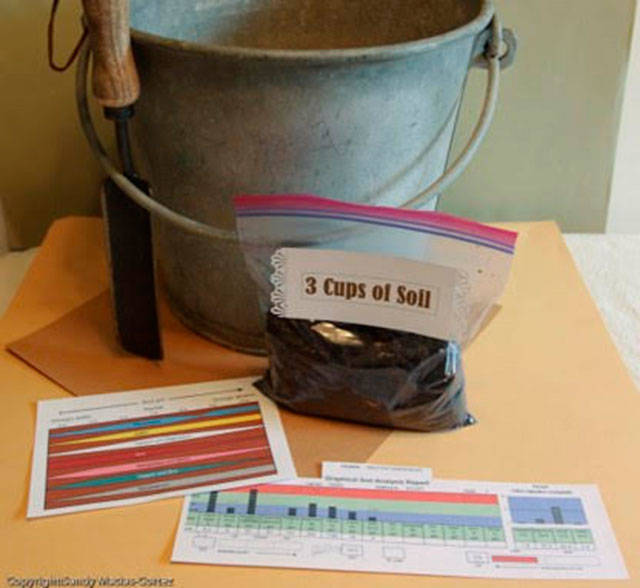Master Gardener plant clinics are ongoing in Port Angeles. The clinics are opportunities to get help solving gardening problems. From 9:30 a.m.-12:30 p.m. on Monday, April 2, at the Clallam County Courthouse, Master Gardeners will be waiting to assist you with your gardening questions.
The Master Gardeners will also be in the Fifth Street Community Garden in PortAngeles from 10 a.m.-2 p.m., Monday, April 2, to talk with about what is happening now in this demonstration garden. They are there to provide one-on-one gardening advice.
Here we are on the cusp of spring, and home gardeners are itching to get growing. There are many factors that will determine how well plants will grow, but the fundamental key to a garden’s success is soil. Soil supplies physical support for roots as well as nutrients and water that plants need.
Soil type
Just by looking at soil you can see many of its properties. How loose or compacted is it? How well does it hold water? How well does it drain?
As WSU Extension soil scientist Craig Cogger writes in Home Gardener’s Guide to Soils and Fertilizers, “Almost any texture of soil can be suitable for gardening, as long as you are aware of its limitations and adjust your management to compensate.”
Loam, a proportional combination of clay, silt, and sand, is the ideal soil. However, few of us have ideal soil.
Soil that is mostly clay is brick-hard when dry and mucky when wet. Clayey soil holds water well, makes great mud balls, and tends to hold onto and not readily release available nutrients. Although it is generally considered difficult to grow in, our native plants thrive in clayey soil.
Silt is silky to the touch when dry, does not hold water as well, clumps loosely in your hand, and crumbles easily.
Sand is gritty, holds water poorly and, consequently, leaches nutrients.
Many gardeners will find their soil falls somewhere in the range from less-than-ideal to not-so-great. Do not despair. While you can’t change the basic composition of your soil, the good news is amending it with compost not only adds nutrients in moderation but helps sandy soil retain water and breaks up soil allowing root growth and increased uptake of nutrients.
Moreover, the biological activity promoted by compost makes for a very healthy, productive soil.
Relative acidity/alkalinity
Your soil probably already contains all the minerals and nutrients necessary to grow healthy, vigorous plants. However, if your soil pH is very low or high, these minerals and nutrients are held by the soil particles.
Adjusting the pH may be all that is needed to release the nutrients and make them available to your plants. A slightly acidic to neutral soil pH (6 to 7.3) is considered ideal for growing most plants.
Soil testing
Performing a soil test will provide information on fertilizer needs, helping to save money and time. Soil tests are a tool that help home gardeners make informed decisions on how to modify their soil and avoid contaminated runoff or groundwater pollution caused by over fertilization.
The Clallam Conservation District (CCD) offers a low-cost soil testing service to residents of Clallam County. The test will give you a reading on the level of major nutrients in your soil together with the soil’s acidity/alkalinity and cation exchange capacity (CEC), which indicates how well nutrients are held by the soil and released to the plant for uptake.
The CCD has a downloadable brochure online at with instructions on how to collect samples for testing.
When your test results are in, the good folks at the CCD will help you interpret them and recommend any needed soil amendments.
Or better yet, bring the results to a Master Gardener Plant Clinic!
Sara Farinelli is a Clallam County Certified Master Gardener.



